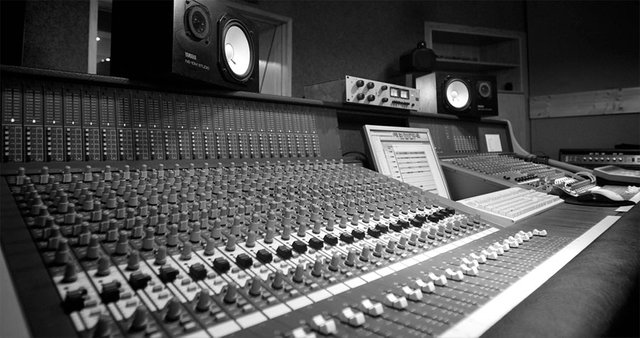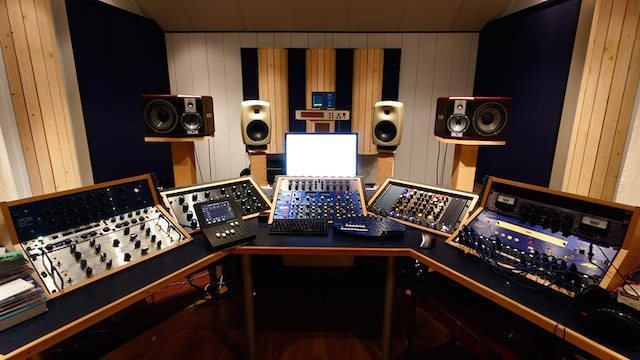Sound basics.............Mixing and mastering explained
Hello, everyone, it's @jamesub and today I will be talking about mixing and mastering what it is and how you should approach it. mixing and mastering are two of the base component of any production. so it's important that you get it right.
Mixing:
This is a process of getting every single element of your track to work together as a whole. This process is always the same, it doesn't matter what DAW your using. Let's say you have made a track containing all usual elements such as drums, bass, vocals guitar and so on. The first thing every beginner will do is to wonder why the track sound so bad? it usually ends up sound muddy. The composition itself may be good but it still sounds bad. This is almost always as a result of bad mixing.
N/B: A muddy mix is a mix where the sounds does not sound crisp and clear.
It is important to choose the right sound to begin with. If you have composed that is not just going to work, no amount of mixing an mastering can save you.
In other to understand the mixing process, try to envision orchestra on a stage playing a symphony. You will notice that the placement of the individual player is not random. To achieve a good balance in terms of volume, loud instruments like brass, percussion traditionally go in the back with the woodwinds and strings in front of them.
This is important to keep in mind because when you mix your track it goes the same, you want every single element in the track to have its own place in the mix.
We also have some amazing tools at our disposal such as panning, EQ, stereo separation, compressors reverbs and so on.
Try to picture the mix as you've stage, you will want something such as you leads and vocals up front were everyone can hear them clearly. You want your main part to get the attention, other things can sit in the back and some things you want out on the sides. Doing so will make the mix sound a lot cleaner.
The first problem every producer is likely to face is the low end will turn to interfere and overpower everything else in the mix
This is something you have to deal with in the mixing process. firstly,
make sure that everything has its own place in the mix
Use side-chaining to help keep the low end under control
Now that you a basic understanding of what mixing is and why its so important let's move on to the mastering.
What is mastering?
Well let's assume your done mixing, you should always aim to get your mix sounding as good as possible during the mixing stage after that the track should be 99% finish
Mastering is the process of doing that last one percent fine tuning and polishing before the track is release or we say that it is the last step after mixing is complete.
As you enter the mastering stage, the track should already be finish, It's about very small fine tuning.
Typically a mastering engineer will do some very fine EQING to remove any problem frequencies and some light multi-band compression. Sometimes a warm tab emulator effect are used to make the tab sound warmer and analog as well as some final limiting to make it louder.
N/B: This process is not the same every time. It depends on the track itself as what one track needs in terms of mastering is perhaps what another track has too much of and so on
The process is different every-time just as people are different, every producer has a unique style that requires a unique form of mastering.
Mastering is a specialize filed, which is why there are dedicated mastering engineers who specialize in it. They have lots of experience mastering and most importantly they have just the right set of equipment and facilities to do so. It's always a hard time monitoring in a typical bedroom studio. A mastering studio will have all the necessary sound absorbing materials on the walls and it's being designed with just one thing in mind,To reproduce sound as realistically as possible You will never be able to obtain the same level of precision in terms of monitoring in your bedroom. That doesn't mean that you can't learn to compensate for the way your room sounds thou. many artists prefer to send their tracks to a mastering engineer even when having the skills necessary to do it them self and the reason for this being that as you work with a track you tends to become immune to how it sounds. If your hearing the same track over and over thousands of time, it can be beneficial if you get someone else master it, someone who gets to hear it for the very first time. That way they are thinking about mastering with very fresh ears, without having their judgment clouded by having listened to it over and over for so long. But this doesn't mean you can't do it yourself, a lot of people actually prefer to master it them self. It's a personal decision.
It is also possible to become good at mastering even though you don't have an ideal monitoring environment.
It will take a lot of practices and it's all about knowing your speakers and your room and how to translate to other rooms and other systems
That will be all, for now, I hope it was helpful? question and contributions are welcome through comment




Nice try...
Thanks @joila
picturing the mixer as a stage?... then that's a big stage! I'm just saying...
well thumbs up to those who actually could handle this equipment... it surely takes practice!.. great break down though @jamesub..
@jayboss it's quite fun walking with it. Maybe you should give it a try someday.
Thanks for stopping by
Thanks